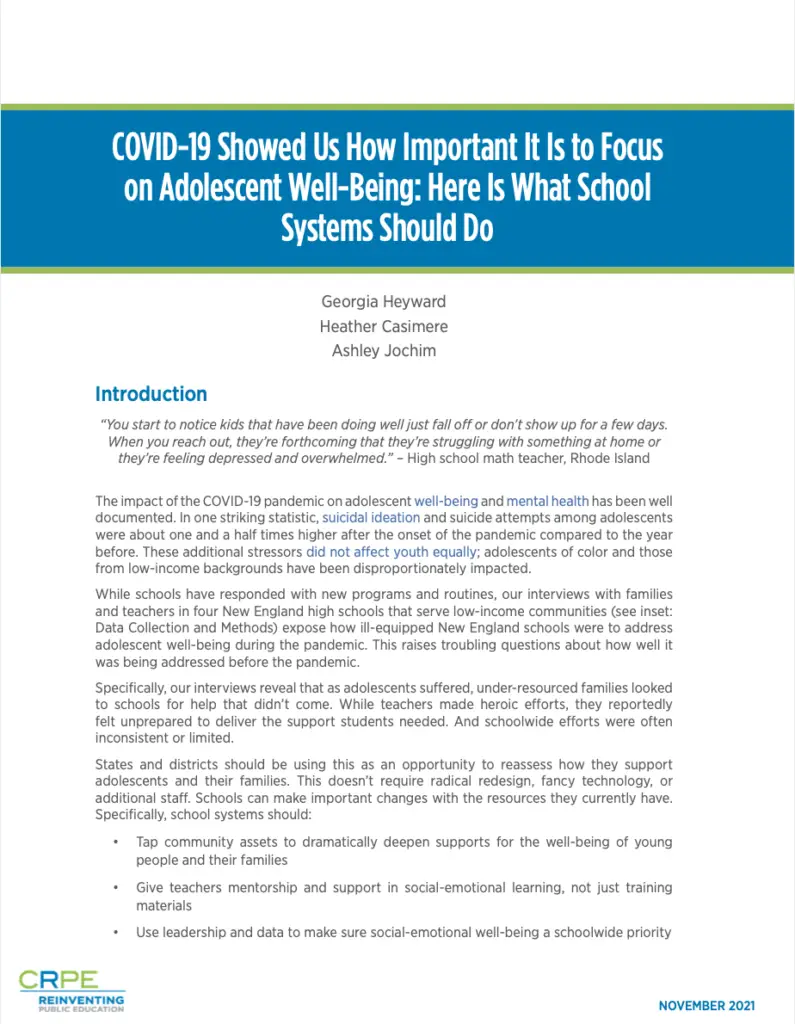In partnership with the Barr Foundation, the Center on Reinventing Public Education conducted longitudinal interviews with ten teachers and seven parents across four school systems in Connecticut, Rhode Island, Maine, and Massachusetts between January and June of 2021.
Our interviews expose how ill-equipped New England schools were to address adolescent well-being during the pandemic. Specifically, our interviews reveal that as adolescents suffered, under-resourced families looked to schools for help that didn’t come. While teachers made heroic efforts, they reportedly felt unprepared to deliver the support students needed. And schoolwide efforts were often inconsistent or limited.
States and districts should be using this as an opportunity to reassess how they support adolescents and their families. This doesn’t require radical redesign, fancy technology, or additional staff. Schools can make important changes with the resources they currently have. Specifically, school systems should:
- Tap community assets to dramatically deepen supports for the well-being of young people and their families
- Give teachers mentorship and support in social-emotional learning, not just training materials
- Use leadership and data to make sure social-emotional well-being a schoolwide priority







Voice and choice: New England students highlight which pandemic-era changes should stay—and which should go
Lisa Chu
Research Analyst, CRPEMaddy Sims
Senior Fellow, CRPE